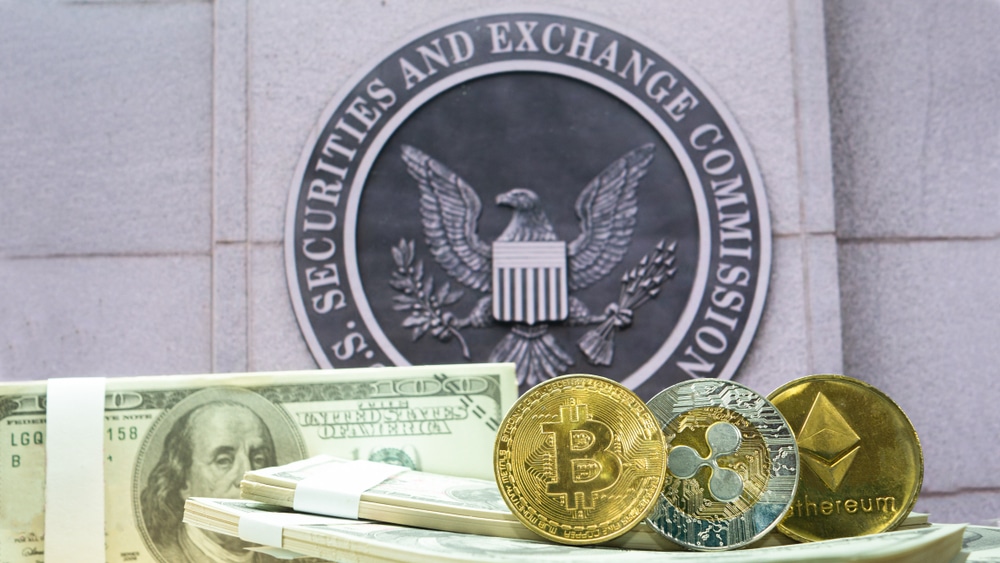Phoenix and Wasabi Leave US Market Due to Regulatory Pressure

Sanctions against Consensys and Samourai have generated an air of cynicism among service providers in the United States. On this account, several custodial wallet services providers such as Acinq, Phoenix, and Wasabi wallets have decided to discontinue services for consumers based in the United States in regards to crackdown on two major custodial services providers.
Risks Associated with Self-Custodial Wallet
The Acinq and zkSNACKs have highlighted reservations about self-custodial wallet status as legitimate money service firms after recent action from the US regulatory agencies. The authorities in the United States are cracking down against Consensys and Samourai wallets.
These crackdowns have prompted similar service providers namely zkSNACKs to prohibit users in the United States from accessing its services as per a 27th April statement issued by the firm.
The regulatory sanctions against these service providers have gripped these firms in a legal conundrum if they are to be seen as legitimate money services that encompasses Lightning services, lightning nodes, and self-custodial wallet services.
Acinq noticed in a post updated on 26th April posted on X. The service further stated that Phoenix Wallet users have until 2nd May to adjust with the upcoming changes.
Crackdown on Self-Custodial Wallets
The self-custodial wallet services providers such as Wasabi wallet are going to implement the policy changes effective with immediate effect. Acinq noticed that Phoenix wallets users can drain their wallets but avoid forced-closure of their wallet since on-chain fees can inflate considerably.
Meanwhile, regulators hailing from multiple jurisdictions have argued that self-custodial wallets are facilitating illegal financial activities such as money laundering.
On 25th April, Cointelegraph reported that Consensys received a Wells notice from SEC on 10th April. This notice confirmed that the firm was set to undergo a lawsuit from the regulatory agency and face enforcement action associated with MetaMask Swaps and MetaMask Staking.
The regulatory agency further conducted a phone conference that indicated that Consensys has been operating as an unregistered broker-dealer.
A day before the Consensys statement, Cointelegraph reported that the co-founders of mixer Samourai Wallet were arrested on charges of money laundering. These charges were brought by the Department of Justice and other regulatory agencies.
CEO Keonne Rodriguez and CTO William Hill are facing lawsuit of conspiring to commit money laundering with a maximum jail time of 20 years. At the same time, the executives are also facing the charges of conspiracy of operating unlicensed money-transmitting business with the maximum sentence of 5 years.
Regulators in EU to Lessen Strict Sanctions Against Self-custodial Wallets
On the other side of the world, regulators hailing from the EU have relaxed the sanctions against self-custodial service providers. On 23rd March, Cointelegraph article noted that a big portion of the European Parliament committee scrapped 1000 euro or $1080 limit on crypto payments out of self-hosted wallets as part of the new anti-money laundering regulations.
At the same time, crypto trading platforms have continued to comply with the regulatory due diligence. These requirements are inclusive of but not limited to identity verifications and users who carry out business transactions of at least 1000 euros.
At the same time, the crypto trading platforms operating in the EU are making preparations for aligning with the MiCA framework.
The regulatory framework is directed towards cryptocurrency services providers and has specified provisions and SOPs set for stablecoin issuers. The MiCA laws have been approved and set to go into effect in the region on December 2024.
There are many major cryptocurrency exchanges that have decided to halt their operations until the firms have completed updating their operational policies in accordance with the new rules. At the same time, the stablecoin issuers that are operating out of the region are going to undergo major changes such as reporting requirements and auditing disclosure, etc.
At the same time, the stablecoins issuers in the region have to comply with the minimum reserve requirements and maintain transparency to ensure investor safety.













